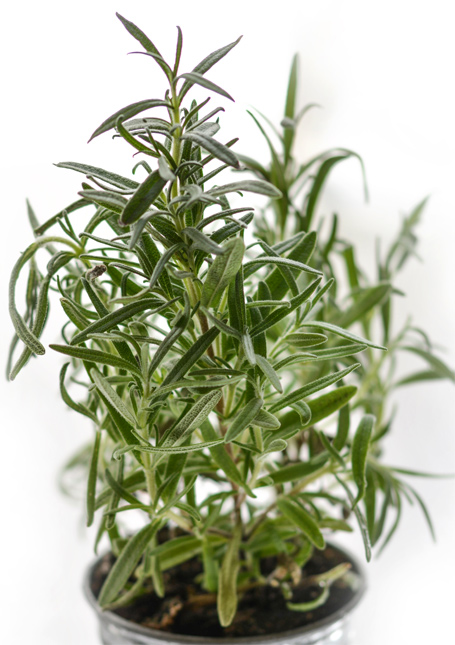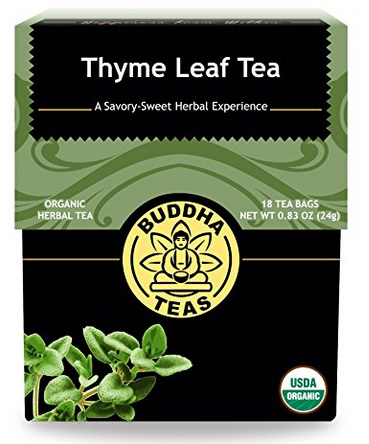Health Benefits of Thyme tea and Thyme Oil

Thyme tea and thyme oil have many medicinal and culinary uses. Thyme oil is also known under its Latin name, Thymus vulgaris. There is a saying: When in doubt, use thyme. Indeed, thyme is very powerful medicinal plant and in this post we will see why.
Thyme is one of the perfect medicinal herbs out there. Besides, thyme is a popular ingredient in many dishes. It tends to get along with other herbs very well without overpowering them.
Folklore tales often contain claims that fairies reside in this plant. In ancient times people used to reserve a patch of thyme only for fairies, very much like the way many people plant flowers to attract certain insects, like butterflies.
In the traditional medicine, thyme has been used to treat depression, epilepsy, shyness, and nightmares. During times of war, thyme oil has been used in battlefields due to its antiseptic function. In addition, thyme is beneficial to expel both gas and worms from the body. The ancient Greeks used it as a fumigator.
Interestingly enough, thyme is considered a good source of iron. In fact, you can find about 6 milligrams of iron in 5 grams of dried thyme. Note however that 5 grams of thyme can be quite a lot, about 2 and a half tablespoons.
Medicinally, thyme can be used in several ways. Usually it is used in the form of thyme tea. The other form is thyme essential oil. However, thyme can also be prepared into tinctures, and can be used as a salve.

The main component of thyme and thyme essential oil is thymol.
Thymol is the most active ingredient of Thyme and Thyme oil. It has anti-fungal and antibacterial properties. Many artificial cleaning products use natural thymol as their key ingredient, which is a good indicator as to how potent this herb in fact is.
Thyme is frequently found in baths and lotions. Dried thyme is sometimes used for keeping insects away from linens.
Table of Contents
Health Benefits
Thyme and thyme oil have antispasmodic, antibacterial, anti-rheumatic, hypertensive, expectorant, and calming properties. As a home remedy thyme oil has been used to treat arthritis, gout, wounds, insect bites, water retention, menstrual problems, and skin conditions.
The list of health benefits is long and includes the following:
Respiratory Problems
Thyme has been known for its long standing uses in traditional medicine for respiratory problems, including asthma, cold, flue, allergies, bronchitis, and congestion. Thyme tea is great for respiratory distress, especially cough and bronchitis. The anti-inflammatory ingredients in thyme help eliminate mucus and ease inflammation. Thyme also stops muscle spasms, making it very useful in the treatment of asthma, whooping cough and stomachache.
Antioxidant Properties
Thyme contains antioxidants of phenolic type, like thumonin, lutein, and zeaxanthin. It is close to the top of the list of herbs with antioxidant action. It can help reduce the harmful free radicals and prevent the oxidative damage to the cells and organs of your body.
Anti-fungal Properties
The bioactive compound thymol is responsible for the ability of thyme and thyme oil to prevent viral and fungal infections.
Heart and Cardiovascular Health
Thyme has high levels of iron, which makes it a herb of choice for boosting circulation and improving the functioning of the red blood cells. Moreover, it has higher levels of potassium and manganese, and both of these minerals are essential for cardiovascular health. It can help you improve the condition of your blood vessels and prevent heart problems and strokes.
Eye Health
Thyme has high levels of carotenoids, which are very effective antioxidants that improve visions health. So this herb can be a good option for people with cataract and macular degeneration.
Hair Health
Thyme oil is considered helpful to prevent hair loss and improve the quality of the hair. Because of this, it is often added to hair products.
Skin Health
Thyme oil can help prevent acne and tone aged skin. It fortifies the skin and provides relief from tightness and itching. Thyme oil also increases the blood flow to the skin, which is great for fatigued skin and improving general skin health.
Oral Health
Thyme oil can be used to prepare mouthwashes and improve oral health.
How to Make Thyme Tea
Boil one cup of water and pour over 2 tea spoons of dried thyme.
If you have some fresh thyme, use 4 teaspoons of fresh thyme. Cover the container and steep for twenty minutes. Strain and drink without sugar or sweeteners.
Safety and Side Effects
Don’t use thyme oil directly on your skin. First it has to be diluted by using a carrier oil. For that you can use olive or almond oil. Test it on a small area of your skin to make sure there is no allergic reactions to it.
If you use thyme essential oil note that this type of oils are NOT intended to be taken internally. Therefore avoid taking thyme oil internally. Doing so can cause dizziness, nausea, diarrhea, vomiting, or muscle weakness. Thyme oil taken internally may affect the health of the heart, lungs, and alter body temperature. It may also overstimulate the thyroid, so it is not a good type for people with hyperthyroid symptoms.
Do not use thyme oil if you have elevated blood pressure. The reason is that thyme oil improves blood circulation, so it may increase blood pressure.
Some people can have allergic reactions, even if the thyme oil is used as it should, i.e., diluted. Others may experience skin inflammation.
People allergic to mint or rosemary oil should stay away from this oil.
Thyme and Oregano
Thyme is a close relative to another herb, oregano. They both contain thymol, and because of that they have excellent antifungal and antibacterial properties.
Thyme is richer in vitamin A and C, but oregano has more potassium and calcium. Oregano is better for respiratory problems, such as asthma, coughs, and bronchitis.
The Bottom Line
You can always keep some thyme powder close to you while preparing your food. It is a great addition to your dishes and it can be sprinkled over food, whether cooked or fresh.
You can use thyme tea to help with respiratory problems, as a mouthwash or for improving your general health.


Leave a comment